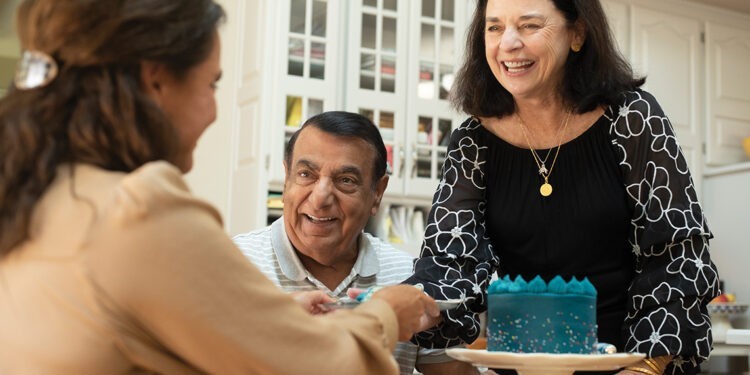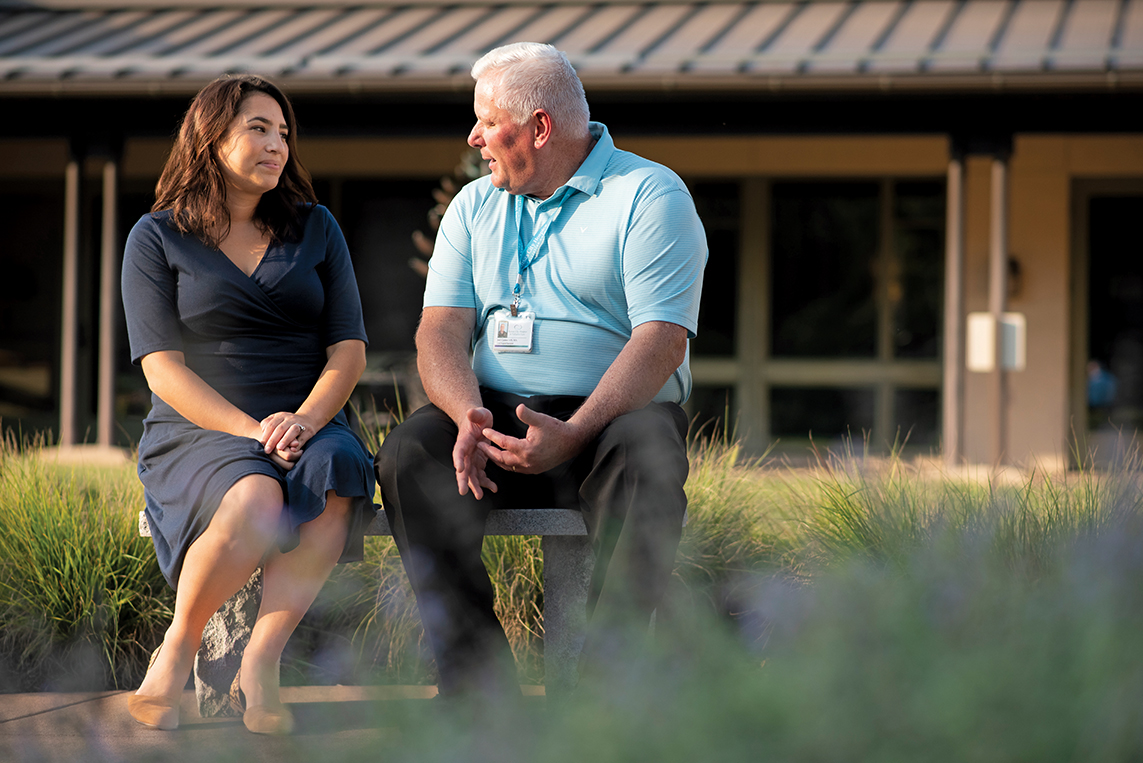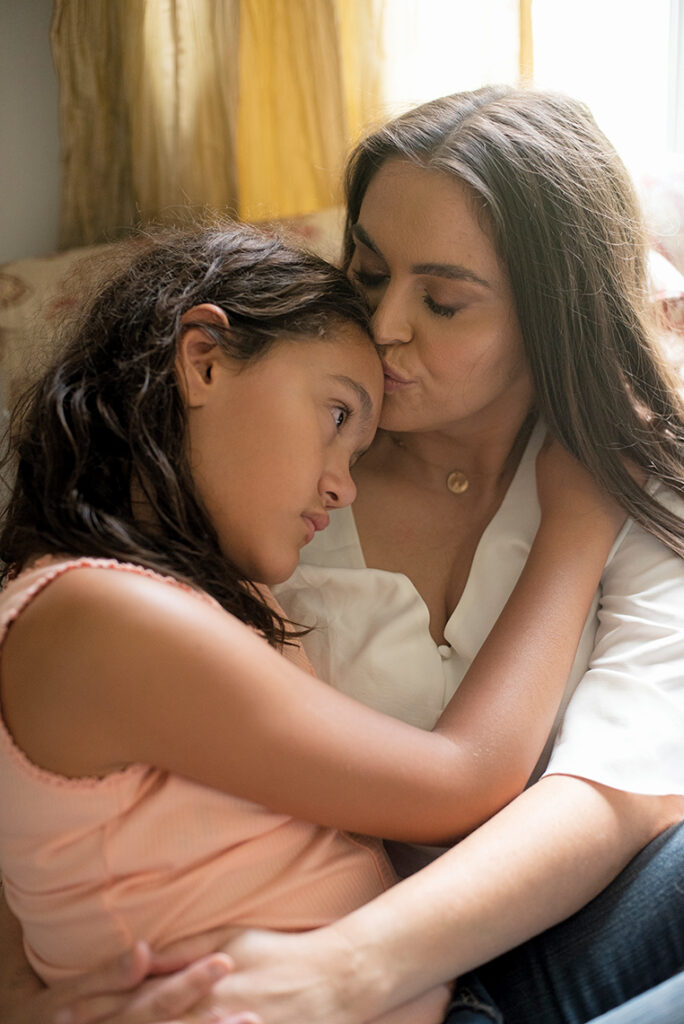Look Toward the Holidays with Hope

Story by Oscar Orozco, LCSW, LMSW
Ah, the holidays. For some, it’s the very best time of the year. For someone who is near the end of life or who is grieving the loss of a loved one, the holidays could be approached with trepidation or even dread.
It doesn’t have to be that way.
Dealing with loss – even anticipated loss – is very real. It’s not simply the death of a person, it’s the death of a time, a routine; it can often feel like the end of your safety net with little comfort or love left. Some people begin to question their faith and their worldviews may even be altered.
A loss can be defined as an experience where there is a change in circumstance, perception, or experience where it would be impossible to return to the way things were before.
– Darcy L. Harrris
For many grievers, the holidays may look and feel very different. Things that previously brought joy might bring pain. There may be a loss of tradition. There may be worries that:
- You’ll never feel positive about the holidays again
- You’ll have to change the way you celebrate
- You feel disconnected from the faith that underpinned your holiday celebrations
- You’ve completely lost the sense of warmth, safety, wonder and joy you felt before the loss


There are four ways to help prepare yourself for a special day (birthday, anniversary or holiday) if you’re grieving or anxious:
Communicate your needs, fears, goals. Talk with family, friends etc. and make a plan for how you want to handle gatherings, meals, decorating, spiritual services, all the elements that make up your holiday. The more you are able to anticipate the difficult and hopeful aspects of your events, the less overwhelmed you may feel. Some things you can say include:
“I appreciate the invitation, but this year I’m choosing to stay home.”
“I’m going to head (upstairs, outside, etc.) and get some quiet time.”
Change your routines. Holidays cannot be exactly the same without your loved one, so spend some time considering what you want to keep the same and what you want to change or avoid. Examples include:
Deciding to travel over a holiday rather than staying at home.
Eating out rather than hosting. These could lead to new traditions or be a simple one-time break.
Saying, “We’re not able to stay all night, but look forward to seeing everyone.”
Cut back on your obligations. Grief is physically and emotionally tiring. Holidays and special days are often tiring or stressful. When these collide, expect to feel it. Take care of yourself. Give yourself permission to conserve your energy by prioritizing and streamlining your activities. Again, communicate with others. Examples include:
Attending a gathering, but letting the hostess know that you may need to leave early and without a big goodbye moment.
Saying in advance, “I’d appreciate it if we don’t discuss [insert topic] tonight.”
Continue your bond with your loved one by celebrating their life and memory. Let others know you want to talk about your loved one and hear others say their name. You can have a ritual to include them in your event like lighting a candle or having their photo displayed. You might make a donation or purchase a gift in their honor. Of course, you will feel some sadness and bittersweet reflections, but remind yourself that it is okay to enjoy yourself and to laugh. Wouldn’t your loved one want that?
The meaning we make from our losses can either debilitate us or help build resilience, and similarly, the stories we tell about our loss can either keep us tied to the hurt OR help create a new way to live with new insights and depth in the future.
And when great souls die, after a period, peace blooms,
slowly and always irregularly. Spaces fill with a kind of soothing electric vibration.
Our senses, restored, never to be the same, whisper to us. They existed. They existed.
We can be. Be and be better. For they existed. – Maya Angelou
We know that learning from suffering is difficult and looks different for every person. Sometimes letting go of older traditions that no longer serve us and creating new ones that do serve us can be the path forward.
For help with grief in the Kansas City area, Kansas City Hospice is the area’s top resource for grief and healing. We offer comprehensive grief support to the families of people we serve. And, we provide an array of no-cost support programs for the larger community. Support groups and workshops meet at our Solace House and throughout the greater Kansas City area. We also provide educational resources to community groups and medical professionals.
Oscar Orozco-Aguilar is a bilingual licensed clinical social worker in Missouri (LCSW) and KS (LMSW). He is a therapist for Resolve Counseling & Wellness. Prior to that, Oscar was a Grief Support Specialist for Kansas City Hospice & Palliative Care and served bereaved families of patients. He first became known to KCH when he served as a volunteer facilitator for peer support groups at Solace House, a program of KCH. He has also been an inpatient social worker with Children’s Mercy Hospital. In addition to his clinical work with adults, teens and couples, Oscar is passionate about raising awareness around mental health through community education.
For more information on Kansas City Hospice & Palliative Care, please visit them at kchospice.org






